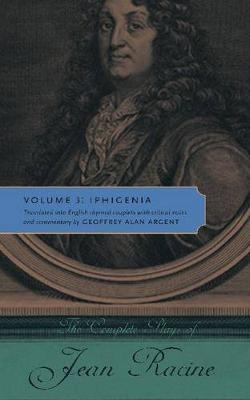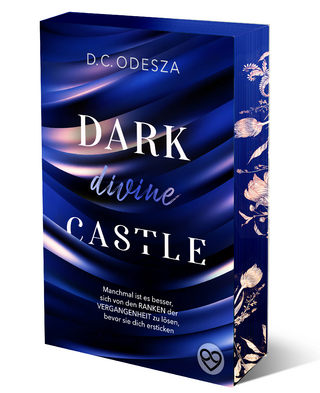
The Complete Plays of Jean Racine
Volume 3: Iphigenia
Seiten
2011
Pennsylvania State University Press (Verlag)
978-0-271-04859-8 (ISBN)
Pennsylvania State University Press (Verlag)
978-0-271-04859-8 (ISBN)
- Titel z.Zt. nicht lieferbar
- Versandkostenfrei
- Auch auf Rechnung
- Artikel merken
An English translation, in rhyming couplets, of the French playwright Jean Racine's Iphigenia. Includes critical notes and commentary.
This is the third volume of a projected translation into English of all twelve of Jean Racine’s plays—only the third time such a project has been undertaken. For this new translation, Geoffrey Alan Argent has rendered these plays in the verse form that Racine might well have used had he been English: namely, the “heroic” couplet. Argent has exploited the couplet’s compressed power and flexibility to produce a work of English literature, a verse drama as gripping in English as Racine’s is in French.
Complementing the translation are the illuminating Discussion, intended as much to provoke discussion as to provide it, and the extensive Notes and Commentary, which offer their own fresh and thought-provoking insights.
In Iphigenia, his ninth play, Racine returns to Greek myth for the first time since Andromache. To Euripides’s version of the tale he adds a love interest between Iphigenia and Achilles. And dissatisfied with the earlier resolutions of the Iphigenia myth (her actual death or her eleventh-hour rescue by a dea ex machina), Racine creates a wholly original character, Eriphyle, who, in addition to providing an intriguing new denouement, serves the dual dramatic purpose of triangulating the love interest and galvanizing the wholesome “family values” of this play by a jolt of supercharged passion.
This is the third volume of a projected translation into English of all twelve of Jean Racine’s plays—only the third time such a project has been undertaken. For this new translation, Geoffrey Alan Argent has rendered these plays in the verse form that Racine might well have used had he been English: namely, the “heroic” couplet. Argent has exploited the couplet’s compressed power and flexibility to produce a work of English literature, a verse drama as gripping in English as Racine’s is in French.
Complementing the translation are the illuminating Discussion, intended as much to provoke discussion as to provide it, and the extensive Notes and Commentary, which offer their own fresh and thought-provoking insights.
In Iphigenia, his ninth play, Racine returns to Greek myth for the first time since Andromache. To Euripides’s version of the tale he adds a love interest between Iphigenia and Achilles. And dissatisfied with the earlier resolutions of the Iphigenia myth (her actual death or her eleventh-hour rescue by a dea ex machina), Racine creates a wholly original character, Eriphyle, who, in addition to providing an intriguing new denouement, serves the dual dramatic purpose of triangulating the love interest and galvanizing the wholesome “family values” of this play by a jolt of supercharged passion.
Geoffrey Alan Argent is an independent scholar residing in Pennsylvania. He has received a 2011 American Book Award for The Fratricides, the first volume of The Complete Plays of Jean Racine.
Contents
Translator’s Note
Iphigenia: Discussion
Racine’s Preface
Iphigenia
Iphigenia: Notes and Commentary
Selected Bibliography
| Erscheint lt. Verlag | 25.10.2011 |
|---|---|
| Übersetzer | Geoffrey Alan Argent |
| Verlagsort | Pennsylvania |
| Sprache | englisch |
| Maße | 127 x 203 mm |
| Gewicht | 363 g |
| Themenwelt | Literatur ► Anthologien |
| Literatur ► Lyrik / Dramatik ► Dramatik / Theater | |
| ISBN-10 | 0-271-04859-X / 027104859X |
| ISBN-13 | 978-0-271-04859-8 / 9780271048598 |
| Zustand | Neuware |
| Informationen gemäß Produktsicherheitsverordnung (GPSR) | |
| Haben Sie eine Frage zum Produkt? |
Mehr entdecken
aus dem Bereich
aus dem Bereich


